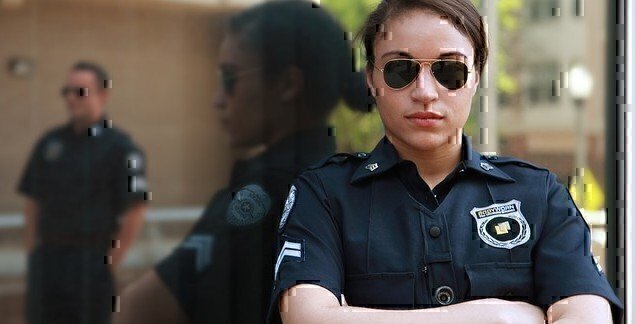Don’t even think about partaking in a drug ever again. Most departments nationwide will not hire you if you’ve used a narcotic within seven years. Marijuana can be iffy; if it was once or twice during the past seven years you may be alright, but most any illegal drug beyond pot will sink you.
Be ready to divulge everything about yourself from the day you were born. Don’t sweat the dumb stuff you did as a youth — it’s everything after your 18th birthday that you need to be concerned (or hopefully not concerned) with. Everyone makes mistakes, but if you’ve ever been convicted of violent acts, selling drugs or sexual crimes, you may as well stop here.
If you don’t have one already, get a bachelor’s degree. Get it online; get it as quick as you can. Police departments — for the most part — don’t care what your degree is. Many prefer administrative degrees over criminal justice because when you get older in the ranks and get a desk job, your job is going to be running the department, not the streets. But the big ace in the hole with the B.A. or B.S. is that you can become a lieutenant, captain, chief. And that’s when the income really starts to build. For example, I live in suburban Pennsylvania and know a lieutenant who is retiring with a 70k-a-year pension with full medical benefits. Now just imagine how much that lieutenant is making while still behind the desk and the badge. If you’re going to weather the process of employment in law enforcement, you may as well get the most out of it you can.
Know your community and be active in it. Community policing is an art, and it is one of the highest-regarded forms of policing. Involvement in the community is crucial to your success as a cop in the department. But it also keeps you in-the-know on what’s really going on outside. You want those local shopkeepers to know you. You want to know everyone’s names. The more eyes you have on your side, the better for you.
Written police tests are uniquely absurd. Forget the study guides. The only way to get better at the tests is to take them. Your score matters to an extent, but as long as you pass you will normally get a crack at an interview (plus, most departments are legally required to add bonus points for veterans’ preference). Apply to take as many tests as you can, wherever you can. The tests are all fairly similar, and after a while you will notice patterns. You don’t have to wear business attire to take a written test — but don’t look like you rolled out of bed either.
When it comes to interviewing, relaxation is gold. Don’t be quick to give one answer to scenario questions. As previously mentioned, police departments want thinkers, and they want to see your thought process. Don’t dress flashy; keep it simple. Don’t sit rigidly, but don’t slouch. The gist of a police interview is this: If you can’t remain calm and unintimidated in front of some cops (and maybe a city official), how will you react in a domestic dispute?
All in all, law enforcement can be a fulfilling and lucrative career, but don’t think it’s anything like military work — even if you were military police. You must be sure you are a good candidate, which means better-than-average decision-making (past and present). Keep in mind that civilian criminal and civil law is a whole other animal. Police work takes a heap of patience with the public, requires a clear, self-sustaining mind, and, more than anything, it takes a deep-down want that doesn’t fade.
Never forget where you came from
P.S. Have you thought about Cyber Security? If So, read this post. How To Get A Job In Cyber Security, Huge Demand.





